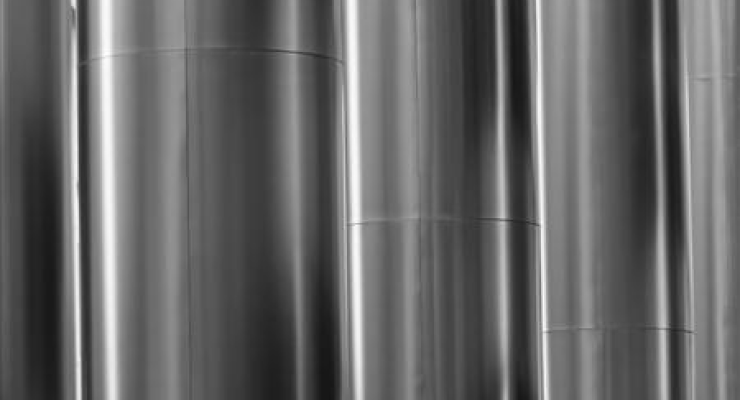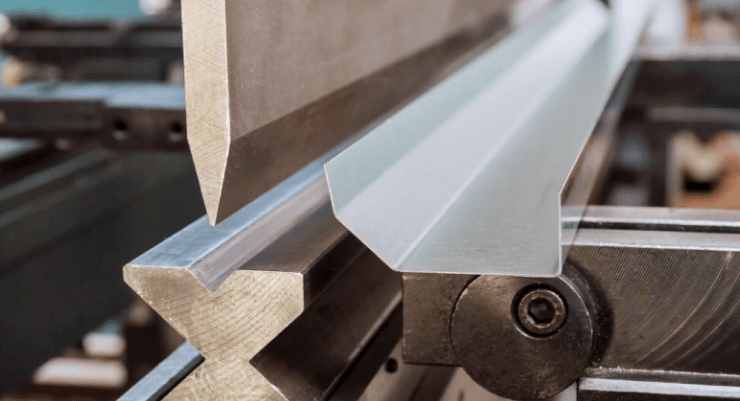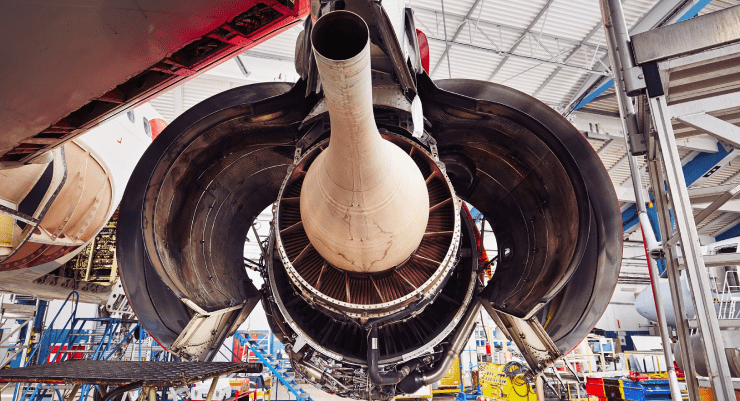Sheet Metal Fabrication
Shaping Precision in the CNC World: Shivay Enterprise’s Sheet Metal Fabrication Excellence
Sheet Metal Fabrication Services :
What is Sheet Metal Fabrication ?
Sheet metal fabrication is the process of transforming flat sheets of metal into three-dimensional components or products. This is done through a variety of techniques, including cutting, bending, punching, welding, and assembling.
Sheet metal fabrication is a manufacturing process that involves forming, cutting, and joining metal sheets to create various products and components used in a wide range of industries. The process of sheet metal fabrication is highly versatile and can produce complex parts with precision. This guide will delve into the various aspects of sheet metal fabrication, including its history, materials, processes, tools, applications, and future trends.
The origins of sheet metal fabrication can be traced back to ancient times when early civilizations, such as the Egyptians and Mesopotamians, started working with metal sheets to create various objects and artifacts. The advent of metalworking tools and techniques paved the way for more sophisticated sheet metal fabrication processes.
Sheet metal fabrication is an important process in many industries. It is used to create a wide range of products, from simple to complex. The versatility of sheet metal fabrication makes it a valuable tool for manufacturers.

Materials Used in Sheet Metal Fabrication :
- Steel: Steel is one of the most widely used materials in sheet metal fabrication due to its strength, durability, and cost-effectiveness. Different types of steel, such as carbon steel, stainless steel, and galvanized steel, are used based on the application’s needs.
- Aluminum: Aluminum is lightweight, corrosion-resistant, and has excellent thermal conductivity, making it ideal for industries like aerospace and transportation.
- Copper: Copper is valued for its electrical and thermal conductivity, making it essential in electrical components and heat exchangers.
- Brass: Brass is a combination of copper and zinc, offering good corrosion resistance and aesthetic appeal, commonly used in decorative applications.
- Titanium: Titanium is known for its exceptional strength-to-weight ratio and resistance to corrosion, making it crucial in aerospace and military applications.
- Nickel: Nickel alloys provide excellent resistance to high temperatures, making them suitable for applications in the chemical and petrochemical industries.












Sheet Metal Fabrication Processes :
- Cutting: The first step in sheet metal fabrication is cutting the metal sheets into the desired shape and size. This can be achieved through various methods, such as shearing, laser cutting, plasma cutting, waterjet cutting, and CNC punching.
- Bending: Bending is used to shape sheet metal into angles or curved forms. This process is commonly carried out using press brakes or other bending machines.
- Forming: Forming involves reshaping the metal sheet without removing any material. Techniques like roll forming, hydroforming, and rubber pad forming are used for this purpose.
- Joining: Joining is crucial in creating complex assemblies and structures. Common joining methods include welding, riveting, brazing, and adhesive bonding.
- Stamping: Stamping is used to create parts with intricate patterns, shapes, or textures by pressing the metal sheet into a die.
- Finishing: Surface finishing techniques like sanding, grinding, polishing, and painting are employed to enhance the appearance and protect the metal from corrosion.
Tools and Equipment in Sheet Metal Fabrication :
- Press Brake: A press brake is a machine used to bend and shape metal sheets accurately. It consists of a punch and die set, which creates the desired bend in the metal.
- Shearing Machine: A shearing machine is used to cut large sheets of metal into smaller, more manageable sizes.
- Laser Cutting Machine: Laser cutting machines use a focused laser beam to cut through the metal sheet with precision.
- CNC Punching Machine: A CNC punching machine is used to punch holes or shapes into the metal sheet using a computer-controlled process.
- Roll Forming Machine: A roll forming machine gradually shapes metal sheets into continuous profiles, commonly used in the production of long, uniform parts.
- Welding Machine: Welding machines are used to join metal sheets through various welding processes, such as MIG, TIG, and spot welding.
- Riveting Tools: Riveting tools are used to join metal sheets by inserting rivets through pre-drilled holes.
- Grinders and Sanders: Grinders and sanders are used for smoothing and finishing metal surfaces.
Future of Sheet Metal Fabrication :
1. Advanced Materials
The use of advanced materials with superior properties, such as composites and high-strength alloys, will become more prevalent in sheet metal fabrication. These materials offer benefits like increased strength-to-weight ratios, better corrosion resistance, and enhanced performance in demanding applications.
2. Additive Manufacturing (3D Printing)
Additive manufacturing techniques, particularly 3D printing, will revolutionize sheet metal fabrication. 3D printing allows for the creation of complex geometries and custom designs, reducing material waste and enabling rapid prototyping. As technology advances, 3D printing of metal parts will become more accessible and affordable for various industries.
3. Automation and Robotics
Automation will play a crucial role in the future of sheet metal fabrication. Robotics and automated systems will handle repetitive tasks, such as material handling, cutting, and welding, leading to increased efficiency, reduced labor costs, and improved precision.
4. Artificial Intelligence (AI) and Data Analytics
AI and data analytics will be integrated into sheet metal fabrication processes to optimize production, predict maintenance needs, and ensure consistent quality. Real-time monitoring and analysis of production data will enable proactive decision-making and process improvements.
5. Smart Factories
The concept of smart factories, driven by the Industrial Internet of Things (IIoT), will gain traction in sheet metal fabrication. Sensors and connected devices will provide real-time data on machine performance, production status, and material usage, leading to more efficient operations and reduced downtime.
6. Digital Twins
Digital twin technology will be adopted to create virtual replicas of physical sheet metal fabrication processes. These digital twins will allow manufacturers to simulate and optimize production before the physical fabrication takes place, reducing errors, and shortening lead times.
7. Environmental Sustainability
The sheet metal fabrication industry will increasingly focus on sustainability and eco-friendly practices. Implementing greener manufacturing processes, recycling metal waste, and reducing energy consumption will become more prominent to meet environmental regulations and consumer demands.
8. Miniaturization and Microfabrication
As technology advances, the demand for miniaturized and precision components will grow. Sheet metal fabrication processes will need to adapt to produce smaller, intricate parts with high accuracy.
9. Collaborative Manufacturing
Collaboration between different stakeholders in the sheet metal fabrication supply chain, such as designers, fabricators, and material suppliers, will become more critical. Enhanced communication and data sharing will streamline production and lead to better end products.
10. Hybrid Manufacturing
Hybrid manufacturing, combining additive and subtractive processes, will become more widespread. This approach offers the benefits of both traditional sheet metal fabrication and additive manufacturing, allowing for complex designs and cost-effective production.
11. Flexible Manufacturing Cells
Flexible manufacturing cells will allow for quick and efficient reconfiguration of production lines to accommodate varying product demands and customizations. This adaptability will enable manufacturers to respond rapidly to changing market needs.
12. Globalization and Supply Chain Optimization
The sheet metal fabrication industry will experience increased globalization and optimization of supply chains. Manufacturers may source materials and components from different regions to take advantage of cost efficiencies and market opportunities.
The future of sheet metal fabrication looks promising, with advancements in materials, technologies, and processes driving innovation and efficiency. The industry will embrace automation, additive manufacturing, AI, and smart technologies to meet the evolving demands of various sectors and enhance sustainability in manufacturing practices.
Here are some of the benefits of using Sheet metal fabrication :
- Cost-Effectiveness: Affordable compared to other materials, enabling cost-effective mass production.
- High Strength and Durability: Metals used provide excellent strength and durability for robust components.
- Design Flexibility: Easily formed, bent, and cut into various shapes and sizes, allowing for customization.
- Lightweight: Suitable for weight-sensitive applications like aerospace and automotive industries.
- Quick Turnaround: Enables rapid production and shorter lead times with advanced fabrication technologies.
- High Precision and Accuracy: CNC machines and laser cutting ensure precise and accurate fabrication.
- Versatility: Serves applications in automotive, aerospace, electronics, and more.
- Easy Assembly: Components designed for easy assembly, reducing manufacturing time and costs.
- Ease of Recycling: Highly recyclable metals align with environmental sustainability goals.
- Aesthetic Appeal: Various surface treatments enhance the appearance to meet design aesthetics.
- Corrosion Resistance: Certain metals offer inherent resistance to corrosion.
- High Heat Resistance: Some materials are suitable for high-temperature environments.
- Consistent Material Properties: Mechanical properties are predictable, allowing accurate modeling.
How Shivay Enterprise is different from other Sheet metal fabrication companies:
- Expertise: Our team of sheet metal fabricators is highly skilled and experienced. We have the expertise to fabricate a wide range of sheet metal products, from simple to complex. We are also experts in using a variety of sheet metal fabrication techniques, including CNC machining, laser cutting, and waterjet cutting.
- Precision: We are committed to precision in our sheet metal fabrication work. We use the latest CNC machines and software to ensure that our products meet exact specifications. We also have a strict quality control process in place to ensure that our products meet our high standards.
- Customization: We offer a high degree of customization in our sheet metal fabrication work. We can create products that meet the specific needs of our customers. We are also able to make changes to existing products to meet the specific requirements of a particular application.
- Dependability: We are a reliable and dependable sheet metal fabrication company. We have a long history of meeting our deadlines and delivering high-quality products. We are also committed to customer satisfaction, and we go the extra mile to ensure that our customers are happy with our work.
- Value: We offer excellent value for money in our sheet metal fabrication work. We use high-quality materials and we offer competitive prices. We also offer a variety of financing options to make our services more affordable.
- Service: We offer excellent customer service. We are always available to answer our customers’ questions and to help them with their sheet metal fabrication projects. We also offer a variety of support services, such as CAD design, engineering, and prototyping.
- Technology: We are constantly investing in new technologies to improve our sheet metal fabrication capabilities. We use the latest CNC machines and software to ensure that our products meet exact specifications. We also have a strict quality control process in place to ensure that our products meet our high standards.
- Commitment to Quality: We are committed to quality in our sheet metal fabrication work. We use the latest CNC machines and software to ensure that our products meet exact specifications. We also have a strict quality control process in place to ensure that our products meet our high standards.




Sheet metal fabrication is used in a wide variety of applications, including:
- Automotive Industry: Sheet metal fabrication is widely used in the automotive sector for manufacturing vehicle bodies, frames, chassis components, and various interior and exterior parts.
- Aerospace Industry: The aerospace sector relies heavily on sheet metal fabrication for producing aircraft components, such as wings, fuselage sections, engine parts, and structural elements.
- Electronics and Electrical Industry: Sheet metal fabrication is used in the production of electrical enclosures, cabinets, racks, and other components for various electronic devices and equipment.
- Medical Equipment: The medical industry relies on sheet metal fabrication for manufacturing medical equipment, devices, and instruments.
- Energy and Renewable Resources: Sheet metal fabrication is used in the production of components for solar panels, wind turbines, and other renewable energy systems.
- Industrial Machinery: Various industrial machinery and equipment, such as agricultural machinery, material handling equipment, and industrial enclosures, utilize sheet metal fabrication.
- Defense and Military: The defense industry uses sheet metal fabrication to manufacture military vehicles, armored vehicles, weapon systems, and other military equipment.
- Telecommunications: Sheet metal fabrication is employed in the production of telecommunication cabinets, racks, and enclosures for housing networking and communication equipment.
- Railway and Transportation: Sheet metal fabrication is utilized in the production of railway carriages, locomotive components, and other transportation-related parts.
- Food and Beverage Industry: Sheet metal fabrication is used in manufacturing equipment and components for food processing, packaging, and storage.
- Furniture and Home Decor: The furniture industry relies on sheet metal fabrication for producing metal furniture frames, brackets, and decorative elements.





How Shivay Enterprise can help you with Sheet metal fabrication servicing:
- Expertise and Experience:
- Highly skilled and experienced professionals in sheet metal fabrication.
- Capable of handling complex projects and delivering high-quality results.
- State-of-the-Art Technology:
- Equipped with cutting-edge CNC machines and advanced fabrication tools.
- Ensures superior accuracy, efficiency, and consistency in processes.
- Custom Solutions:
- A collaborative approach to understanding specific requirements.
- Tailored fabrication services aligned with clients’ vision and objectives.
- Range of Services:
- Laser Cutting: High-precision cutting in various metals.
- CNC Punching: Rapid production of complex shapes and patterns.
- Bending and Forming: Precise angles and curves using press brakes.
- Welding and Assembly: Skilled welders for strong and durable structures.
- Finishing and Surface Treatment: Options for enhanced appearance and corrosion protection.
Cost-Effectiveness:
- Competitive pricing without compromising on quality.
- Efficient production processes and advanced technology for cost-effective solutions.
Customer Support:
- Customer-centric approach with excellent support throughout the fabrication process.
- Promptly addressing queries and providing project updates.
Industries Served:
- Serving diverse industries, including automotive, aerospace, electronics, construction, and telecommunications.
- Tailoring services to meet specific industry requirements.
Quality Assurance:
- Rigorous quality control processes to meet high standards.
- Focus on the accuracy and performance of fabricated products.


